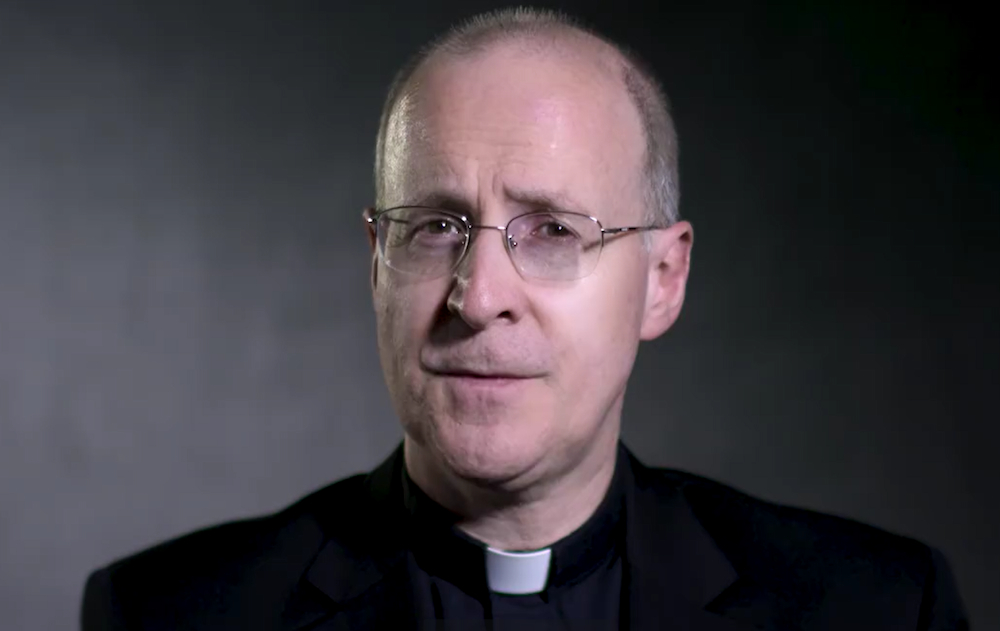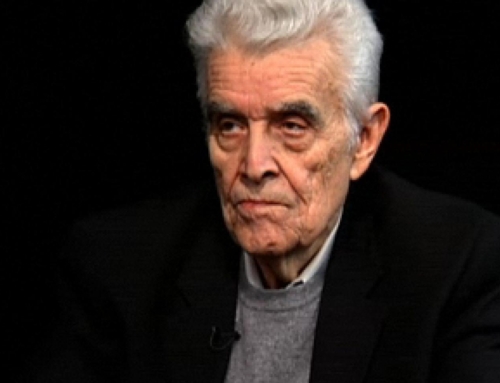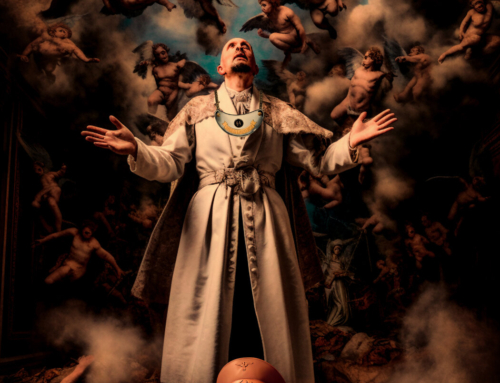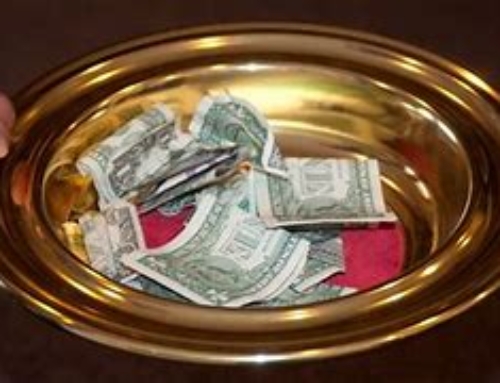Last week I posted a question about Fr James Martin’s constant whine that the “good, celibate gay priests” are not being celebrated and recognized.
Once again he has set up a scarecrow–a straw man. Just what exactly does this “good celibate gay priest” look like? Undoubtedly there are a good number of Catholic priests who experience same sex attraction. I believe many of them are holy, hard working well adjusted men. Their sexuality has been accepted and integrated and by God’s grace they have mastered their lusts and sublimated their sexuality into their priestly vocation. However, they do not describe themselves as “gay”.
In most people’s minds “gay” is a all about the LGBTQ agenda. It’s about rainbow flags, gay parades and it is certainly not about celibacy.
Therefore, what does a “celibate gay priest” look like? If he is “gay” and “out and proud” then the faithful would assume that he is at least in favor of gay sex even if he is not sexually active himself. There will therefore be a prejudice against him from the majority of ordinary church going Catholics.
If the man is not “out and proud” but does experience same sex attraction and he is a hard working, holy priest then the people love him and do celebrate his ministry and his love for the Lord. The fact that they do not celebrate his same sex attraction is irrelevant.
Therefore, I am still stumped by the idea that we are somehow supposed to celebrate and recognize the hypothetical “gay celibate priest” Fr Martin mourns for. What would that look like? Would the parish have a gay day for Father Fabulous? Would the parish school have a cross dressing day for all the children to celebrate Fr Fabulous’ gayness? During the month of June would Father Fabulous wear rainbow vestments? Would everyone come to a parish party and enjoy an Elton John singalong?
This conundrum prompted me to write this post in which I ask, therefore, what Fr Martin actually means by “celibate”. I suggested that perhaps–like some Catholic priests I have met–he simply means by “celibate” that a person is “not married”. Gay men who are sexually active could therefore claim to be “celibate”.
This, of course, is ludicrous. It would lead us, for example, to argue that the Sisters of Perpetual Indulgence are celibate because they’re not married.
It is true that “Celibacy” technically means “not married” but in canon law the vow of celibacy is dependent upon the requirement for “perfect continence”. A third term is used to indicate sexual purity” “Chastity”
It’s worth taking a moment to define these three terms and explain why there is a distinction.
Celibacy means “not married”. Perfect Continence means “not sexually active” and chastity means “sexually pure and licit”
When you think it through, different circumstances will require a different combination of these terms.
All Catholics are required to observe chastity, but chastity is different for people in different situations. A married person is chaste when they are faithful in marriage and only have sexual relations with their husband or wife. A single person observes chastity by observing perfect continence. Because sex outside of marriage is wrong, unmarried people may not have sexual relations of any kind. A person who is vowed to celibacy therefore must also observe perfect continence.
While all this seems perfectly logical there are situations that produce anomalies. So a person could be married, but for various reasons, also be called to observe perfect continence. A person in an irregular marriage who has permission from the bishop may live together as brother and sister observing perfect continence. They are not celibate but they do observe perfect continence in order to observe chastity. A married priest or deacon may agree with his wife to observe perfect continence as a way of identifying with the Lord and with the celibate clergy.
So, while it is possible that some people who are not celibate may observe perfect continence it is not possible for someone who is celibate to be sexually active. This is enshrined in canon law thus:
Can. 277 §1. Clerics are obliged to observe perfect and perpetual continence for the sake of the kingdom of heaven and therefore are bound to celibacy which is a special gift of God by which sacred ministers can adhere more easily to Christ with an undivided heart and are able to dedicate themselves more freely to the service of God and humanity.
The idea, therefore, that a priest can be celibate but engage in sexual activity is against church law.
It may be that this is what Fr Martin means by “celibacy” in which case I am happy to be corrected when he clarifies. However, since he is an avid supporter of New Ways Ministry, who openly endorse gay sex, it does not seem unreasonable to therefore challenge Fr Martin on exactly what he does mean by “celibacy.”







How many diocesan vocations directors are Gay? The Bishop of my Diocese has asked that we start pushing youth at an earlier age towards vocations, isn’t that where the worst of the abuses began, Minor Seminaries. For years my diocese had as an investigator of pedophiles -a pedophile, no problems here, keep moving, nothing to report.
[…] Florida Schools Now Display the State Motto ‘In God We Trust’ – Nancy Flory, The Stream Celibacy? Gay? Fr. James Martin? Whazzat? – Fr. Dwight Longenecker Does The Catholic Church Have Too Many Rules? – uCatholic […]
I don’t know about someone with a same sex attraction being “well adjusted”. There’s something deep down wrong with that orientation. It is indeed, “disordered”. No matter what anyone says or does, no matter what law is passed, no matter how many people celebrate, support, embrace and praise, “gayness” there will always be a feeling somewhere deep down that it’s wrong and and while that feeling can be suppressed, it can never go away. That’s why you see these folks always pushing to “normalize” same sex attraction. They want acceptance and validation. But even with all of that, it can never be normal, and the feeling that something is wrong, suppressed though it may be, will always be there.
I wouldn’t wish that sort of thing on my worst enemy. It must be a living hell to go through life like that.
I agree, but some people do learn to live with it and turn it into something positive in the way that a person with a disability might also struggle to become a hero.